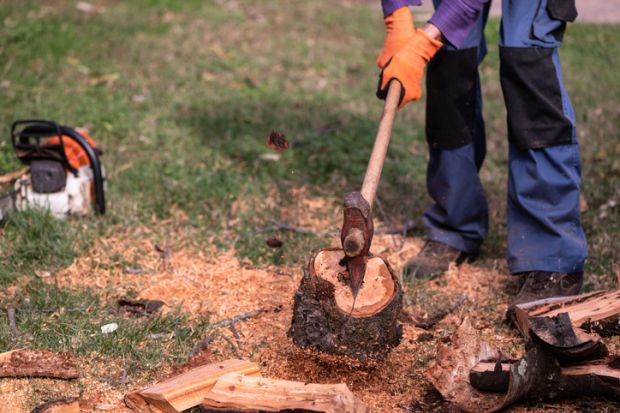Funding pressures being felt by universities are undermining the UK’s ability to become a science superpower, with institutions now considering cuts across the board, a vice-chancellor has warned.
Robert Van de Noort, the historian who runs the University of Reading, said the institution was concerned about whether it will be able to continue its degree apprenticeship scheme and was “seriously looking” at scaling back its support for small businesses in the region.
Decarbonisation programmes and maintenance and infrastructure work were also likely to be affected by cuts, according to Professor Van de Noort, as Reading looks to save money in the face of the rising cost of operating and the ongoing undergraduate fee freeze.
“Us and virtually every university in the country will be seeking further efficiencies, removing offerings that undermine financial sustainability,” he told a parliamentary event on the cost-of-living crisis hosted by the Higher Education Policy Institute (Hepi) and Advance HE.
He said the university’s degree apprenticeships – an area often talked up by government ministers – were costly and “break-even is still a pipe dream for us”.
“We are looking at whether we can continue because they simply don’t pay. If the government thinks they are so important, they should strip the red tape from the offering so that we can actually turn this into a surplus-generating activity,” he said.
On maintenance work, he warned many universities had suspended such activities during the pandemic and this was now continuing but the “further we fall behind, the more expensive it will become to catch up as proactive maintenance is always cheaper than reactive”.
Reading has paid for its students to undertake internships in local businesses but was looking at whether it can continue doing this, Professor Van de Noort warned.
Decarbonisation “involves significant capital upfront investment”, he said, and this is also “one of those things we might not be able to do”.
On staff pay – currently the subject of protracted national negotiations – Professor Van de Noort said that “of course we would want to offer an inflation or near-inflation pay deal but we can’t do that, none of us can,” so instead Reading was looking at ways to save staff money, such as allowing more home-working to cut back on commuting costs and free on-campus meals.
The financial situation many universities find themselves in is undermining their ability to help the country become a science superpower, he said. If the government really wanted to achieve this ambition, he added, it should create a “consistent sustainable financial basis” for universities which would help them invest in themselves and their local economies.
Speaking on the same panel, Stella Maris, a part-time student who also supports the student-elected rector at the University of St Andrews agreed that the crisis “touches all aspects of the ability of institutions to operate effectively”: “From their capacity to support the human infrastructure…to their ability to invest with confidence in the structural changes necessary to embed a culture of sustainability.”
Hannah Sketchley, campaigns and influencing manager at the National Union of Students, said the rising cost-of-living represented an “existential threat” to the work universities do as the experiences of many students struggling to make ends meet undermine the idea that higher education is a passport to a better life.
She called for a rent freeze, a rise in wages for younger people and a review of the student finance system to better support learners in difficult times.
Register to continue
Why register?
- Registration is free and only takes a moment
- Once registered, you can read 3 articles a month
- Sign up for our newsletter
Subscribe
Or subscribe for unlimited access to:
- Unlimited access to news, views, insights & reviews
- Digital editions
- Digital access to THE’s university and college rankings analysis
Already registered or a current subscriber? Login








